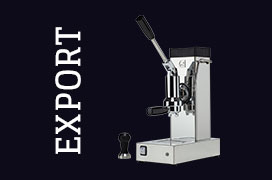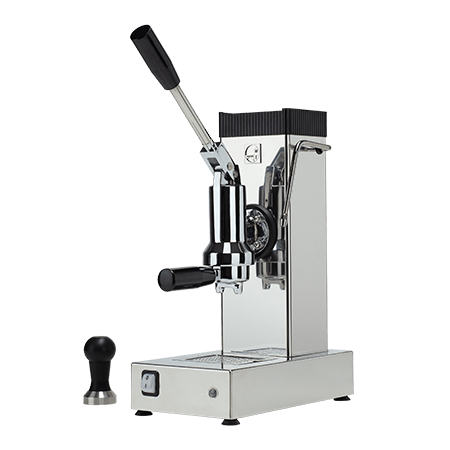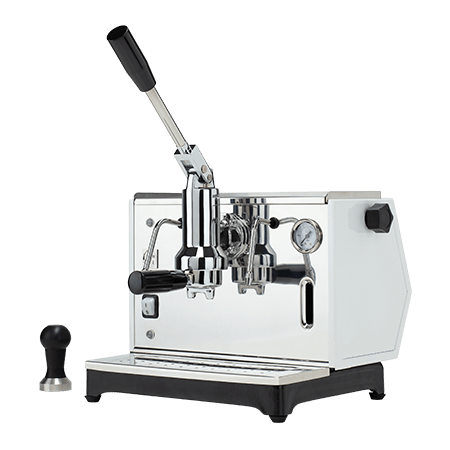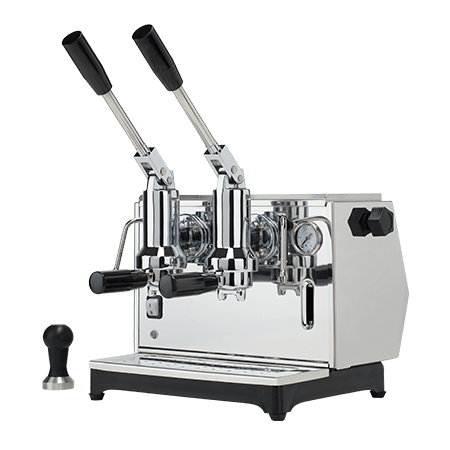It has a sweet and enveloping taste, the caffeine content is very low and it gives energy without causing side effects: ginseng coffee as a less caffeine-intensive alternative to regular coffee is a popular solution.
But do we really know everything about this drink? In this article, we will explain what ginseng coffee is, how it is prepared and what its nutritional characteristics are. Furthermore, we will discover the qualities of this ancient root and in which cases it may cause side effects. Let us set out to discover ginseng coffee.
What is ginseng coffee
Made by mixing ginseng powder with coffee, ginseng coffee is an energising drink with a pleasant aroma. Ginseng is an herbaceous plant mainly cultivated in Asia (especially Malaysia), Canada and the USA. Botanically, it is known as Panax ginseng or Panax quinquefolius and belongs to the Araliaceae family.
For the preparation of ginseng coffee, the pure roots are used, from which a powder containing ginsenosides and panaxosides is extracted. Counted among the oldest remedies in Chinese medicine, ginseng has extraordinary beneficial properties, particularly anti-ageing, aphrodisiac and energising.
The root is also highly valued for its positive effects on mood and immunity; indeed, ginseng coffee is successfully administered to convalescent people, sports enthusiasts and the elderly.
Coffee made with ginseng root is slightly lighter than traditional espresso, with a colour tending towards hazelnut. In terms of taste, it is a mild but slightly bitter beverage, which can be enjoyed natural or with the addition of a sweetener. In most cafés and coffee shops it is served already sweetened, while at home it can be prepared with a coffee machine using pods or capsules and sweetened as desired.
Commonly, ginseng coffee is served in a cup that is slightly larger than the espresso cup; or you can opt for the large cup version, a quantity that corresponds to that of long coffee.

Ingredients of ginseng coffee
Ginseng coffee can be made in many different ways, also depending on the ingredients used. The ones most commonly used, however, are as follows:
- pure ginseng extract;
- cream which, in the finest blends, is of vegetable origin;
- caffeine-free instant coffee (hence the ‘deca’ version);
- sugar, the amount of which may vary depending on the recipe and personal taste.
The combination of these ingredients guarantees you a drink with a pleasantly sweet and velvety flavour, perfect to enjoy at breakfast or at any other time of the day, perhaps when you want to treat yourself to something special.
Nevertheless, if the idea of preparing it in the ‘artisanal’ method frightens you, you can always opt for a ready-made mixture and prepare it with the help of one of our coffee machines. Precisely because we know a lot about coffee, we know the secrets of this beverage very well, whatever variant you want to experiment with.
And the ‘rule’ is always the same for everyone: if you want to drink good coffee, you should do it with the right machine. So, go to our catalogue and discover the right coffee machine for you: the one that will allow you to enjoy a fantastic ginseng without any effort!
The nutritional properties of ginseng
Ginseng coffee is a nutritionally rich drink that is slightly higher in calories than espresso coffee: while the latter contains just over two calories, ginseng ranges from 30 to 85 calories per cup, depending on whether or not sugar is present.
48% of the calories are fat, 31% carbohydrates and 21% protein. Specifically, in one cup of ginseng there are:
- 6.47 grams of carbohydrates, of which 6.95 grams are sugar and 0.1 grams fibre;
- lipids are 4.42 grams, divided into 2.53 grams of saturated fat, 1.074 grams of monounsaturated fat, 0.321 grams of polyunsaturated fat and 13 milligrams of cholesterol;
- protein is 4.41 grams;
- potassium is 284 milligrams;
- sodium is 64 milligrams.
In addition to these substances, ginseng coffee is rich in vitamins (vitamin A and vitamin C) and minerals (calcium and iron).
How much caffeine does ginseng coffee contain
Although the name may be misleading, ginseng is not a real coffee. The coffee content is minimal and it is simply soluble coffee. Consequently, the caffeine content is very low and has minimal effects on the body, so ginseng coffee as a less caffeinated alternative could definitely be evaluated.
Clearly it should be avoided by those who have serious problems and cannot take caffeine, but otherwise it is not comparable to coffee in any way: it does not cause insomnia or agitation, has no effect on blood pressure and does not speed up the heartbeat. To avoid caffeine, it is also possible to find the totally caffeine-free variant on the market.
Benefits and contraindications of ginseng coffee
As we have already mentioned, the ginseng root is a treasure trove of healthy properties for the body:
- has calming effects and counteracts stress;
- improves mood;
- promotes mental faculties and concentration;
- gives energy;
- stimulates the immune system;
- has aphrodisiac properties;
- facilitates digestive processes;
- stimulates peristalsis and helps combat constipation;
- improves blood pressure conditions.
The action of ginseng on the nervous system is very important, as it gives tone, aids memory and helps with activities that require concentration. Several scientific studies on ginseng root claim that it enhances erotic activities and promotes the sexual sphere.
The right amount of ginseng helps the body produce valuable substances for the immune system, fighting viruses and bacteria. Some studies have also found a close correlation between ginseng and blood sugar, as the former would help lower the levels of the latter when they are too high.
At the same time, numerous scientific investigations are currently underway to further investigate the vasodilatory capabilities of this drink, which, if they are really established, would help all those suffering from high blood pressure.
Although ginseng can bring enormous benefits to the body, its active ingredients should not be abused. Excessive consumption of ginseng coffee can, in fact, lead to intestinal disorders, cause anxiety, and cause cardiovascular disorders.
In addition, people suffering from autoimmune diseases, metabolic conditions or bleeding disorders should avoid the very substance.
It has to be said that ginseng coffee contains a minimal amount of ginseng powder so side effects are very sporadic. But let’s see what annoyances are associated with excessive ginseng consumption.
Is ginseng coffee bad for you?
Many people wonder whether coffee can have negative effects on the body. In particular, doubts relate to diabetes and high blood pressure, but another frequent question is whether or not ginseng coffee can be addictive.
First of all, one must ascertain the quality of the ginseng coffee. It frequently happens that the ginseng extracts offered are of poor quality or even that the raw material is not actually ginseng. If substances other than ginseng are used, it is not possible to assess the side effects. However, it is possible to buy top-quality ginseng extracts selected and actually obtained from the herbaceous Panax ginseng plant.
As for doubts about diabetes, these arise from the fact that in many places ginseng coffee is already sweetened. In reality, a good quality ginseng coffee can have a positive effect on the glycaemic index, reducing diabetes levels in the blood.
The quality argument also applies to those with cardiovascular problems. In this case, however, care must be taken not to overdo it, as excessive consumption could create problems for those suffering from hypertension. While in the correct quantities, taking ginseng can promote blood flow and prove to be a valuable ally for those with cardiovascular problems.
Addiction is one of the least well-founded risks. In fact, the substance does not cause any kind of physical dependence except for the taste. Therefore, ginseng coffee has absolutely no contraindications and is not harmful if taken correctly, i.e. a maximum of four cups per day.
A rule, the latter, that applies even more to specific categories of people, such as pregnant and breast-feeding women. And in case you suffer from gastritis, you can be even more relaxed: the advice, in this case, is still to opt for the decaffeinated version.
Conclusion: can you always drink ginseng coffee?
Now that you have a clear and precise overview of ginseng coffee and all the benefits it can provide, you might be wondering if it is possible to drink it all the time, whatever your health condition. Well, the answer is yes.
As we have already explained, the really important thing is to respect the maximum recommended dose which, we remind you, should never exceed four cups per day.
That said, if you suffer from a specific disease, the advice is still to talk to your doctor, who will be able to give you personalised advice based on your state of health.
Remember that no matter how much you may enjoy a drink, abusing it is never a good idea, not least because you don’t want to risk losing the taste of drinking it. Our advice, therefore, is to consider ginseng coffee as a pleasant ‘temptation’ to indulge in from time to time, saving you the trouble of making it yourself and leaving this task to one of our coffee machines.








